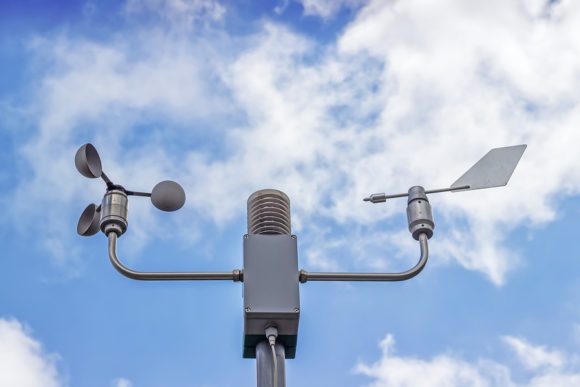Expert testimony is subject to a well-established standard set forth by the US Supreme Court 30 years ago in Daubert v. Merrel Dow Pharms., Inc. Under the Daubert standard, trial judges are gatekeepers of expert testimony, tasked with determining whether (1) an expert’s testimony’s underlying reasoning or methodology is scientifically valid, and (2) such testimony can be properly applied to the facts at hand. The Court listed multiple factors for judges to consider, including
- Whether the theory or technique in question can be (and has been) tested,
- Whether it has been subjected to peer review and publication,
- Its known or potential error rate,
- The existence and maintenance of standards controlling its operation,
- and whether it has attracted widespread acceptance within a relevant scientific community.
In Florida, expert testimony is governed by Florida Statute §90.702, which codifies the Daubert standard. Specifically, it states that expert testimony is admissible if:
- It is based upon sufficient facts or data.
- It is the product of reliable principles and methods.
- The expert has applied those principles and methods reliably to the facts of the case.
Florida judges apply the Daubert reliability factors when evaluating expert reports. The significant volume of insurance litigation in the state requires courts to regularly evaluate expert testimony as it relates to storm damage. On September 20, 2023, Florida’s 4th District Court of Appeals (DCA) issued an instructive opinion in Universal Property & Casualty Ins. Co. v. Edward Navlen and Saunee Navlen, No. 4D2022-1590 (Fla. 4th DCA 2023). The insured’s claim arose from reported “wind damage” to their roof on August 1, 2020. The insurer inspected the property and sent the insured a letter denying coverage for the roof damage. The insureds then filed suit for breach of contract.
 The insurer deposed the insured’s expert and filed a motion objecting to the admissibility of the expert report and testimony on numerous grounds, including that: (1) the expert testified that the wind speeds were 60–70 mph but admitted those measurements were taken over 17 miles away from the property, and (2) his opinion was based on “Benchmark” data. The trial court allowed the expert’s testimony despite these objections, the jury found for the insureds, and the insurer appealed the final judgment.
The insurer deposed the insured’s expert and filed a motion objecting to the admissibility of the expert report and testimony on numerous grounds, including that: (1) the expert testified that the wind speeds were 60–70 mph but admitted those measurements were taken over 17 miles away from the property, and (2) his opinion was based on “Benchmark” data. The trial court allowed the expert’s testimony despite these objections, the jury found for the insureds, and the insurer appealed the final judgment.
On appeal, the insurer argued that the insured’s expert testimony should have been excluded because he relied on weather data that did not meet the Daubert reliability factors.
Applying the Daubert standard, the court ultimately determined that the insureds’ expert report was not reliable. The expert relied on Benchmark data and failed to establish its credibility beyond asserting that he uses it “all the time.” There was no indication that the data was peer-reviewed or had been tested. No potential error rates or maintenance standards were provided. The expert admitted that the Benchmark weather data was based on an algorithm about which he could not offer any testimony to satisfy the Daubert reliability factors. Since the expert could not offer testimony to meet the reliability factors, the Benchmark weather data was not reliable.
Beyond that, it is important to address a discussion not reached by the 4th DCA –the expert’s testimony related to wind speeds 17 miles from the property. The wind-speed expert testimony should also have been excluded. Florida precedent suggests that wind speeds of 60-70 m.p.h. taken at a wind station over seventeen miles from the property do not accurately reflect the wind speed at the property. In Gonzalez v. Citizens Prop. Ins. Co., 273 So. 3d 1031 (Fla. 3d DCA 2019), the court held that wind speeds measured three miles from the subject property were not an accurate reflection of the wind speeds at the property. Surely, seventeen miles is too far away for an accurate measurement.
Even if a court chooses not to immediately preclude expert testimony about weather data based on the location where it was collected, any expert will still need to satisfy the Daubert reliability factors and explain how weather data from one location can be used to determine the weather at a different location. In other words, the expert will have to specifically explain the methodology used to make the extrapolation and the testing process, peer review, error rate, controlling standards, and general acceptance of the extrapolation.
Navlen, therefore, calls into question how much credibility Florida courts will place on experts in insurance cases. If an insured wants to retain an expert to offer testimony about weather conditions, that expert will not be able to rely on weather data that he looked up online or obtained from another source. The expert will be required to offer specific testimony that directly addresses the Daubert reliability factors as they relate to this weather data – and then how the data relates to the facts at hand. If the expert does not or cannot provide the information required to meet the Daubert standard, then the testimony related to the weather data should be considered unreliable.
See the Insurance Journal article about the Navlen decision.
Topics Legislation Florida Liability
Was this article valuable?
Here are more articles you may enjoy.



 Allstate CEO Wilson Takes on Affordability Issue During Earnings Call
Allstate CEO Wilson Takes on Affordability Issue During Earnings Call  BMW Recalls Hundreds of Thousands of Cars Over Fire Risk
BMW Recalls Hundreds of Thousands of Cars Over Fire Risk  Nine-Month 2025 Results Show P/C Underwriting Gain Skyrocketed
Nine-Month 2025 Results Show P/C Underwriting Gain Skyrocketed  Insurance Issue Leaves Some Players Off World Baseball Classic Rosters
Insurance Issue Leaves Some Players Off World Baseball Classic Rosters 

